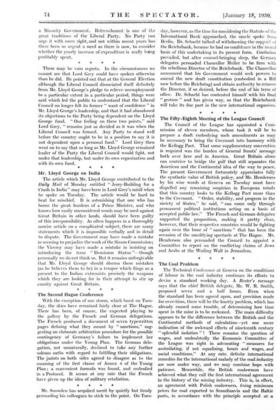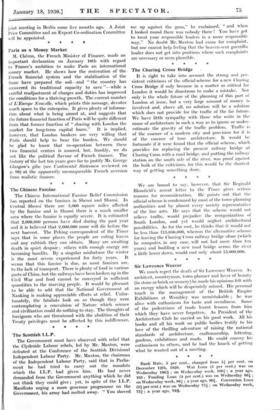The Coal Problem The Technical Conference at Geneva on the
conditions of labour in the coal industry continues its efforts. to devise a standard working day. A Reuter's message says that the chief British delegate, Mr. W. R. Smith, proposed seven and a half hours. Even when the standard has been agreed upon, and provision made for over-time, there will be the knotty problem, which. has already caused some trouble, of determining how time spent in the mine is to be reckoned. The main. difficulty appears to be the difference between the British and the Continental methods of calculation—yet one more indication of the awkward effects of nineteenth century " splendid isolation " ! There remains the question of wages, and undoubtedly the Economic Committ-ee of the League was right in advocating " measures for assimilating, if not equalizing, hours and wages, and social conditions. At any rate, definite international remedies for the international malady of the coal.industry are now under way, and we may combine:- hope with patience. Meanwhile, the British coalowners have achieved what they call the -first-international agreement in- the history of the mining industry. This is, in effect, an agreement with Polish coalowners, fixing minimum prices for coal exported to - Scandinavia and- the Baltic ports, in accordance with the • principle accepted at a joint meeting in Berlin sonle five months ago. Joint Price Committee and an Export Co-ordination Committee will be appointed.







































 Previous page
Previous page